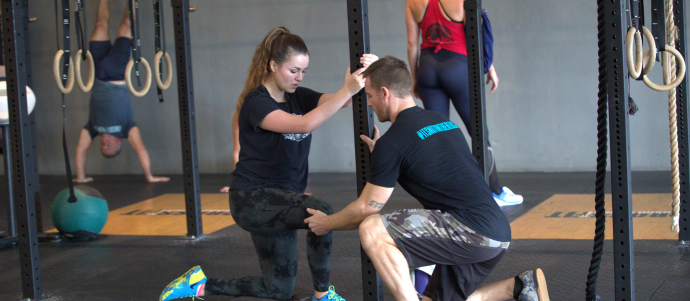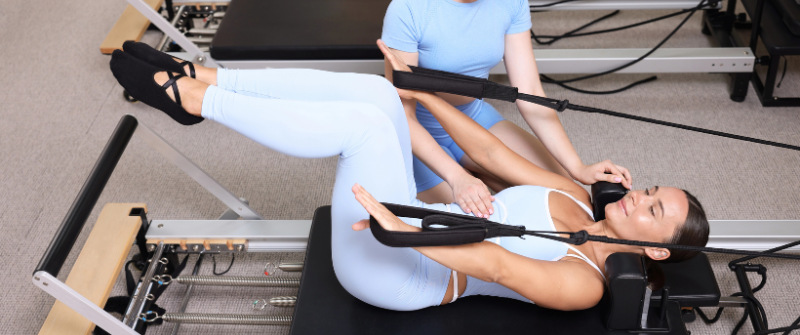
- by NEXO Team
- December 11, 2023
Between heavily edited photos on social media, stylized images in magazines, and overall unrealistic beauty standards, society has developed a skewed view of what bodies “should” look like. As a result, many people struggle with the pressures of conforming to these norms, which can lead to weight-related issues.
Gyms play a pivotal role when it comes to both shaping and challenging today’s beauty standards. While someone may be inspired to begin their fitness journey, they may also be overwhelmed by the prospect of securing a gym membership due to the stereotypes of fitness fanatics or the lack of diversity in body types that they see in gym advertisements. No one should feel uncomfortable or intimidated when it comes to looking after their physical health, which is why it’s so important for gym management to create positive and inclusive environments that cater to diverse needs.
The Reality of Weight Concerns
Despite the intentional push in recent years for more body diversity in the media, body image issues are still prevalent. In fact, a 2021 study from the University of Connecticut found that over half of adults in the US, the UK, Australia, Canada, France, and Germany have experienced weight stigma. Another study from 2005 found that nearly 70% of adult women withdraw from activities due to their negative body image. While body image issues are pervasive among women of all ages, men suffer at the hands of society’s unrealistic standards as well: according to a study of more than 50,000 adults, 41% of men thought they were too heavy and were self-conscious about their weight.
The impact of these concerns can affect individuals’ mental health as well, as conditions like anxiety, depression, and eating disorders are often linked to societal expectations and self-perception.
Challenging Stereotypes in the Fitness Industry
Although community is a large part of why many people join gyms in the first place, the fitness industry isn’t immune to perpetuating stereotypes and biases related to weight. Sadly, these stereotypes can lead to a toxic environment and discourage people from pursuing their fitness goals because they fear they might be judged. Promoting body positivity and inclusivity is such a powerful antidote, as it challenges the idea that the way an individual’s body looks and is directly linked to their physical health.
Creating an Inclusive Gym Environment
When it comes to fostering an inclusive environment, designing gym spaces to accommodate diverse body types is a crucial first step. Gym management should ensure that equipment caters to different sizes and abilities to ensure all members can comfortably and confidently work toward their fitness goals. People often work out to help them feel their best from a physical and mental perspective, so it’s also important that gym management strives to create an atmosphere that’s free from judgment while fostering a culture of acceptance amongst members.
Tailored Fitness Programs
One size doesn’t fit all when it comes to fitness, and different body types need different accommodations for their workout routines. Gym management should consider offering personalized workout plans that address individual weight concerns to ensure all members feel supported and set up for success on their unique fitness journeys. It’s also important for trainers to set realistic and sustainable fitness goals that cater to members’ needs, as this will help them feel confident and motivated when it comes to their workout routine instead of feeling discouraged and unequipped.
Providing Educational Resources
A key factor that may dissuade people with diverse body types and abilities from joining a gym is the general lack of education about health within fitness facilities. Individuals have different needs when it comes to diet, exercise, and overall well-being. Gym management plays a vital role in spreading this message by sharing information that highlights the nuances of taking care of one’s health. This not only helps to create a more inclusive environment but also empowers individuals to make informed choices that align with their specific needs and goals.
Building a Supportive Community
Being part of a community that supports, motivates, and celebrates one another is such an important aspect of one’s fitness journey. Offering group classes, support groups, and social events that are specifically tailored for members with weight concerns can foster a sense of belonging and make the prospect of joining a gym much less intimidating.
Training and Sensitivity of Staff
The backbone of any gym is its staff, and their training is one of the most important aspects of creating a positive and inclusive atmosphere. Gym management should always train staff to handle members’ weight concerns with empathy and understanding. Providing guidance and emotional support without judgment enables all members to feel safe and supported as they work to achieve their individual goals.
Addressing Challenges
 Identifying the obstacles that come with promoting inclusivity is the first step to overcoming them. From reshaping internal policies to using marketing creative that represents members’ various body types and abilities to confronting societal norms head-on, gym management must be proactive in addressing these challenges.
Identifying the obstacles that come with promoting inclusivity is the first step to overcoming them. From reshaping internal policies to using marketing creative that represents members’ various body types and abilities to confronting societal norms head-on, gym management must be proactive in addressing these challenges.
To ensure gyms are doing right by their members, they should make an active effort to listen and learn from members by offering feedback mechanisms, such as anonymous surveys. Establishing a body diversity committee within the gym and offering continuous education about the variety of the human body can also contribute to overcoming hurdles in the pursuit of inclusivity.
The Positive Impact
When gym management prioritizes creating an environment that accommodates weight concerns, it benefits everyone. Along with improved member retention, members are also more likely to be satisfied with their experience and to see positive changes in their overall well-being as a result.
Future Trends and Ongoing Commitment
As we’ve seen in the past few years alone, the fitness industry is always changing, with new approaches and technologies constantly weaving their way into fitness facilities. It’s essential for gym management to be open to implementing these new trends, so long as they help the gym maintain its commitment to inclusivity, diversity, and body positivity. While adapting to the evolving landscape is important for business, maintaining an environment that promotes the well-being of all individuals should always be the top priority.
Conclusion
In order for gyms to be welcoming places that support all kinds of fitness journeys, it’s imperative for gym management to stop perpetuating stereotypes and actively work to shape an environment that supports the 2/3rds of individuals who are struggling with weight concerns. By fostering acceptance and empowerment, gyms become safe spaces that improve all aspects of their members’ health.
Categories
Fill out a short form to contact us with your questions or to receive a customized quote.
Recent Posts
-
 Injury Waivers Aren’t Enough: Insurance Gaps Jiu-Jitsu Owners Overlook
January 21, 2026
Injury Waivers Aren’t Enough: Insurance Gaps Jiu-Jitsu Owners Overlook
January 21, 2026 -
 How Gym Risk Management Can Lead to Lower Premiums Over Time
January 21, 2026
How Gym Risk Management Can Lead to Lower Premiums Over Time
January 21, 2026 -
 Why Combat Sports Gyms Pay More for Insurance and How to Control Costs
January 21, 2026
Why Combat Sports Gyms Pay More for Insurance and How to Control Costs
January 21, 2026 -
 Functional Fitness Injury Trends That Impact Insurance Underwriting
January 21, 2026
Functional Fitness Injury Trends That Impact Insurance Underwriting
January 21, 2026 -
 Why Pilates Studios Face Unexpected Liability Despite Being Low-Impact
January 21, 2026
Why Pilates Studios Face Unexpected Liability Despite Being Low-Impact
January 21, 2026

